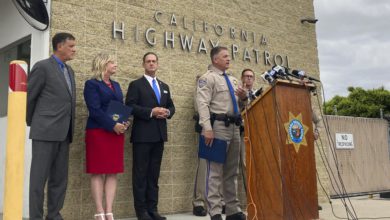Heekin said none of those campaign contributions are unusual or unique to Cranley. He said he’s never asked politicians for favors or been promised one, but he and other developers routinely donate to political campaigns.
“You feel like you have to give,” said Heekin, who is a partner at Source 3, a Cincinnati-based firm and the original developer of Freeport Row. “If you go to any fundraiser for any of these guys, you see lawyers and developers.”
Heekin and his partners made donations totaling $8,600 to Cranley in 2016 and 2017, before pulling out of the project in 2018. While no favors were promised or given, Heekin said, “I definitely wanted him to know we contributed.”
Like most of the companies working on Freeport Row, Heekin also gave to some City Council candidates, though in smaller amounts.
Does money from big donors really make a difference? Cincinnati lawyer Don Mooney, who supported Simpson’s run for mayor, said he saw the impact in 2017 when Simpson’s fundraising from mostly small donors was overwhelmed by Cranley.
After the election, Mooney led a successful campaign to ban donors from using limited liability companies, or LLCs, to make multiple maximum donations, a tactic Cranley’s campaign employed to raise large sums in the mayoral election.
“It becomes very obvious to these developers that the more money they give, the more predisposed the mayor and council are to giving money to their development project,” Mooney said. “Ordinary citizens who think they are being responsible by giving $100 or $200 to their favorite candidate get swamped when they are competing with guys who can write multiple checks from their LLCs or solicit their employees to also pony up.”
Developers: Cranley understands complex deals
Cranley, who describes political fundraising as a “regrettable necessity,” said it’s unreasonable to suggest campaign contributions from Freeport Row companies or from any developers influence his decisions. He said he has opposed projects backed by campaign donors in the past and would do so again if the deal was wrong for the city.
He also said The Enquirer’s analysis of campaign records is flawed because Elevar, which accounts for about 60% of the money he got from Freeport Row companies, is owned by Tom Fernandez, a family friend whose kids have babysat his son.
Cranley said counting Elevar’s donations with those from other companies involved with Freeport Row renders the $110,075 total he’s received from the companies “completely false and deeply misleading.”
“Tom and I never spoke about this deal,” Cranley said.
Fernandez said he’s backed Cranley because of the mayor’s support for the immigrant community. He said he’s donated to his mayoral campaigns for years and gave $13,200 to his gubernatorial fund last year when Cranley asked him for a contribution.
Fernandez said Freeport Row and other Elevar projects in the city, including FC Cincinnati’s new stadium, have nothing to do with his donations.
“We don’t actively engage the mayor,” Fernandez said. “He is a headstrong individual. He makes his opinion on his own.”
Other firms working on Freeport Row said they also sought nothing and received nothing from the mayor. When asked why they contributed, a spokesman for the current development team described the money as an investment in “transformative” leadership, which he said is necessary to keep Cincinnati from falling behind other cities in development.
“We have always conducted our business in an honest, ethical and legal way,” said Christian Sexton, who has worked on Freeport Row as a partner in Kean Ventures and an executive at Fortus Group. "To suggest otherwise completely misses the mark."
Sexton and his wife, Stefane, contributed $14,400 to Cranley’s campaign between 2017 and 2020.
Cranley would not dispute the description of himself as transformative. He talks often about leading “Cincinnati’s comeback” and has made economic development a priority.
As mayor, Cranley appoints members to the planning commission and refers legislation, including development deals, to City Council. He also works closely with the city manager to pursue and evaluate potential deals.
The city’s charter puts the city manager in charge of negotiations, but Cranley and City Manager Paula Boggs Muething both have argued the mayor can and should play a larger role .
In the case of Freeport Row, the formal process began with the city’s development office, which vetted the project and made recommendations for about $20 million in tax incentives. The project appealed to development officials because it would add as many as 300 market-rate apartments without displacing any residents.
“We were really excited about the project,” said Lindsey Florea, the city’s major projects division manager.
After drawing up an agreement with Freeport Row’s developers, Florea said, she gave it to her boss, Development Director Markiea Carter, who then took it to the city manager and the mayor for review.
“Markiea meets with them,” Florea said. “She runs it up the chain.” Carter did not respond to questions about Freeport Row, and city officials have not responded to a public records request The Enquirer made in February for documents related to the project.
Heekin said Cranley’s importance to development deals was obvious when Heekin began talking to city officials about Freeport Row six years ago. He said the city’s development process is cumbersome, requiring multiple votes and approvals from administrators, boards, community councils, the planning commission and City Council.
So when he was getting started, Heekin said, he asked city staff members who he should see at City Hall to make sure the process went as smoothly as possible. He said they told him to talk to Cranley.
“We all kind of knew John wanted to see your development and what you’re doing,” Heekin said. “It was well known that when you start your project, you go to John.”
That was fine with Heekin. He said he considers Cranley, a lawyer with a background in development, a smart guy who is more knowledgeable than most politicians about the complexity of deals like Freeport Row. “John gets it,” he said.
Heekin said he and his partners, Ken Oswald and Craig Gossman, met briefly with Cranley in his City Hall office to introduce themselves and talk up the project.
Sometime later, Heekin said, he met the mayor for the lunch at Washington Platform. Heekin said he believes the meeting was on Ash Wednesday in 2017, because Cranley arrived at the downtown restaurant with ashes on his forehead from Mass.
He said they talked a bit about Freeport Row after Cranley asked how the project was going. At some point during the meal, Heekin said, Cranley asked if he planned to donate to his mayoral campaign, as he had in the past. Heekin said he wasn’t surprised by the request because it’s not unusual for politicians in cities where he does business to solicit campaign contributions.
Within 10 days of that March 1 meeting, campaign records show, Heekin and his partners gave a total of $4,400 to Cranley’s campaign.
The mayor said he doesn’t recall the lunch, but he said he does meet with developers from time to time. Cranley has said the city charter’s description of the mayor as the “official head and representative of the city” gives him the authority to actively engage developers, though others believe that task should be left to the city manager.
“The charter and the public expect that the mayor is involved with economic development,” Cranley said.
'The system is just terrible'
Klingler, the Over-the-Rhine community council member, went to City Council in January to complain that Cranley is too involved, and that campaign contributions might be influencing his support for Freeport Row.
“If we’re serious about having our citizens trust us,” Klingler said, “we have to be serious about rooting out corruption.”
The response to the allegation was swift. Cranley said it was an attack on his character. Some council members called it “shameful” and “not helpful.” And one, Steve Goodin, compared Klingler’s accusation to the QAnon conspiracy theory about baby-killing Satanic cults.
Regardless how much money Cranley had raised or where it came from, Goodin said in an interview, there was no evidence campaign contributions affected the mayor’s decisions.
“I think John is fundamentally honest,” said Goodin, a supporter of the project who was appointed to council in November and has received no money from Freeport Row companies. “Knowing the mayor like I do, I don’t think he’s for sale.”
Councilman Greg Landsman, who got $6,600 from firms working on Freeport Row, said he’s proof campaign contributions don’t dictate outcomes. He voted against the project in January, he said, in part because he received the city’s report on the project and its tax incentives just days before he was asked to approve it.
Landsman said no one associated with the project asked him for help or tried to connect the campaign money to his vote.
But he said he understands why Klingler and others might think otherwise. Last year's arrests of three City Council members on corruption charges tend to make people wary, he said.
Landsman said the solution is greater transparency, both in the city’s work with developers and with campaign money. So he intends to propose a new rule requiring all contributions to be posted on a searchable, publicly-available database within 48 hours after they’re given.
Currently, city candidates generally file campaign finance forms quarterly on paper sheets. To track the donations made to council and Cranley by Freeport Row companies, The Enquirer went through years of those paper filings.
Some also have suggested Cincinnati consider banning donations from developers who have business with the city. Primo, the author who’s studied campaign finance, said that would be an extreme and possibly unconstitutional measure.
It’s better, Primo said, to focus on reforming the development system itself. He said setting up the development process so elected officials are less involved in the nitty-gritty of negotiations might be a good start.
“It’s so easy to say, ‘Let’s ban campaign contributions,’ but the problem is much deeper and it really speaks to how development occurs,” Primo said. “Why is the system set up so developers have to go begging to politicians to build what they want to build?”
Heekin agrees the system needs to change. He said developers who take significant financial risks to build in Cincinnati often feel they’ve been put through the wringer by the process and the politicians who oversee it.
“The system is just terrible,” Heekin said. “Our process keeps you vulnerable and beholden, and that’s not the way it should be.”



























